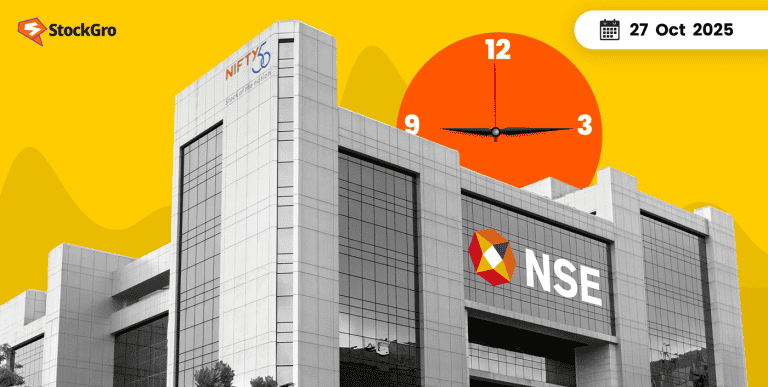
In the world of modern finance, knowing the difference between portfolio management & wealth management can make all the difference in how you build, preserve and grow your assets. In fact, as per a published report asset allocation alone accounts for over 90% of the variability in a portfolio’s long-term returns, a sign of how actively investors are seeking structured financial expertise. Yet, while both approaches aim to grow wealth, they follow very different paths and strategies. Understanding the distinctions between them allows you to select the one that aligns best with your financial objectives and comfort with risk.
What Is Portfolio Management?
Portfolio management involves choosing and supervising a collection of financial assets such as equities, bonds, and mutual funds. Its main goal is to get the best possible returns based on an individual’s financial goals and comfort with risk. This can be done in two ways: active management, where a manager actively buys and sells assets to beat the market, or passive management, which copies a market index with minimal trading. Both methods focus only on the investment portfolio itself, aiming to manage risk and make it grow effectively.
What Is Wealth Management?
Wealth management is a much broader service that looks at a person’s complete financial picture, not just their investments. It takes an all-encompassing financial approach, with portfolio management forming just one component of it. In addition to managing investments, wealth management also covers other important financial areas. These can include financial planning, tax planning, retirement planning, and estate planning (which involves preparing for the transfer of assets to heirs). The main goal is to grow and protect a person’s total wealth and achieve their long-term life goals in a coordinated way.
Difference Between Portfolio Management & Wealth Management
Portfolio management and wealth management are often mistaken for one another, but they vary in several core aspects, explained below.
- Difference in scope
The main difference lies in their scope. Portfolio management is specific and focuses only on a person’s investment portfolio. Its work is limited to managing assets like stocks, bonds, and mutual funds.
Wealth management, by contrast, covers a much wider financial scope. The extent of services provided marks the biggest distinction between portfolio management and wealth management. It takes a complete, or “holistic,” view of a person’s entire financial life. Portfolio management is just one part, or a subset, of wealth management. A wealth manager assesses the overall financial picture rather than concentrating solely on investments. The portfolio management vs wealth management scope is the biggest differentiator.
- Primary goals
The goals of each service are different. The central aim of portfolio management is to optimise investment performance for a desired level of risk. Its core emphasis lies in enhancing the portfolio’s overall value.
The primary objective of wealth management is to preserve and grow an individual’s total wealth over an extended period. This includes growing money, but it also includes other goals like preserving wealth, planning for retirement, managing taxes, and passing assets to the next generation. It aims for overall financial well-being.
- Services provided
The portfolio vs wealth management services on offer show a clear difference.
Portfolio management services include:
- Asset allocation: Deciding the right mix of investments (like 60% stocks, 40% bonds).
- Security selection: Deciding which particular stocks, bonds, or other instruments to include in the portfolio.
- Risk management: Balancing the portfolio to match the client’s comfort with risk.
- Monitoring and rebalancing: Watching the investments and making changes to stay on track.
Wealth management includes all of those investment services, plus many others, such as:
- Financial planning: Creating a complete roadmap for all financial goals.
- Tax planning: Finding ways to reduce tax payments.
- Estate planning: Assisting in creating wills and trusts to organise, protect, and transfer wealth to heirs.
- Retirement planning: Making sure a person has enough money for their retirement.
- Insurance and risk planning: Protecting assets and family with the right insurance.
- Legacy or education planning: Setting aside money for children’s education or charitable goals.
- Client relationship
The relationship with a portfolio manager is often focused on investments. It can be more transactional, centered on portfolio performance and market updates.
A wealth manager typically builds a deeper, long-term relationship. Since they handle all parts of a client’s financial life, the relationship is more extensive and ongoing. A wealth manager often acts as a central coordinator, working with other professionals like accountants or lawyers on the client’s behalf.
- Tax treatment & regulated
Portfolio management services (PMS) and wealth management services differ in tax treatment. PMS is a SEBI-regulated service where investments are managed in the client’s name, and profits are taxed as per capital gains, short-term or long-term based on holding period.
Wealth Management, on the other hand, covers broader financial planning, including estate, tax, and succession, and may involve coordination with PMS providers. While both professionals are regulated under respective financial authorities, PMS managers are directly governed by SEBI, ensuring compliance standards, disclosure norms, and transparent performance reporting.
Target Audience & Use Cases
The right service depends on a person’s financial situation and needs. The target audience and common use cases for portfolio management and wealth management are different.
Here is a quick look at portfolio vs wealth management services, discussing who typically uses each service and for what purpose.
| Aspect | Portfolio management | Wealth management |
| Primary user | Individuals mainly focused on growing their investments. | High-Net-Worth Individuals (HNIs) and families with complex finances. |
| Main purpose | Build and manage an investment portfolio to get the best returns for a set level of risk. | Manage, grow, and protect total wealth across all financial areas. |
| Use case example 1 | A person who has saved money and wants professional help to invest in stocks and bonds to build wealth over time. | A business owner balancing company assets, personal investments, taxes, and retirement strategies. |
| Use case example 2 | An investor who wants to optimise their existing portfolio for better performance or risk reduction. | A family that needs help with estate planning, setting up trusts, and passing wealth to the next generation. |
Choosing the Right Fit
Selecting the right service comes down to your primary goals and how complex your financial life is. The choice depends on whether you need a specialist for one area or a general coordinator for all of them. Here are some points to consider.
- When your goal is purely investment-focused: If your primary motive is investment growth, portfolio management is structured to serve that specific purpose. It is the right fit if you are looking for professional management of your assets, such as stocks, bonds, and mutual funds, to achieve the best possible returns for your risk level. This service is ideal when your primary need is a specialist to build and manage your investment portfolio.
- When you need a complete financial picture: If your needs are broader than just investments, wealth management is the better choice. This service is for individuals who also need help with tax planning, retirement planning, insurance, and estate planning. It is for those who want a single, coordinated plan that looks at their entire financial life, not just the investment piece.
- Matching the service to your financial situation: A straightforward financial situation, where the main goal is building wealth through investments, is a good fit for portfolio management. A difficult financial situation, such as owning a business, managing multiple assets, having significant tax considerations, and planning to pass wealth to the next generation, requires the comprehensive, all-in-one approach of wealth management.
- The extent of advice you want: Choose portfolio management if you want a specialist who concentrates only on asset allocation and investment selection. Choose wealth management if you need a main advisor who looks at the big picture, coordinates with your accountant or lawyer, and ensures all parts of your financial plan work together.
Conclusion
To sum up, the difference between portfolio management & wealth management boils down to the problem you need to solve. If your main priority is how your market-based assets perform, portfolio management offers the suitable direction. If your concerns involve your entire financial legacy and its many interconnected parts, you require the other, more comprehensive solution.
FAQs
The main difference is in scope: portfolio management focuses strictly on selecting and managing investments like stocks and bonds to optimize returns for a given risk level. Wealth management, however, is holistic, covering investments, taxes, estate planning, retirement, and all aspects of a client’s financial life.
If your goal is limited to building or optimising an investment portfolio, portfolio management is sufficient. Wealth management is more suitable for those needing guidance on tax planning, retirement, insurance, or estate transfer, beyond just investment selection and asset allocation.
Portfolio management services are usually provided by licensed portfolio managers or PMS firms focused on investment asset management. Wealth management services are offered by private banks, financial advisory firms, or multidisciplinary wealth advisors who coordinate all aspects of a client’s financial planning and legacy.
Wealth management is generally more personalised. It customises solutions for your entire financial landscape, addressing goals, risk tolerance, taxes, and family needs. Portfolio management is personalised within investment boundaries, but does not consider wider life or financial planning objectives.
Portfolio management typically charges a percentage of assets under management (AUM), and sometimes performance fees. Wealth management may charge asset-based, flat, or hourly fees, reflecting broader and more complex services, including financial and estate planning, tax optimisation, and ongoing advice.

